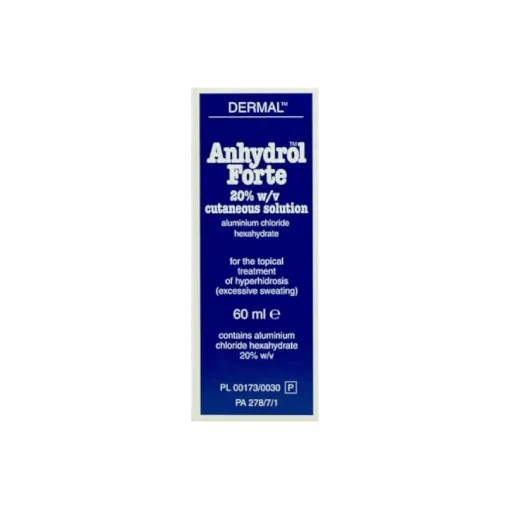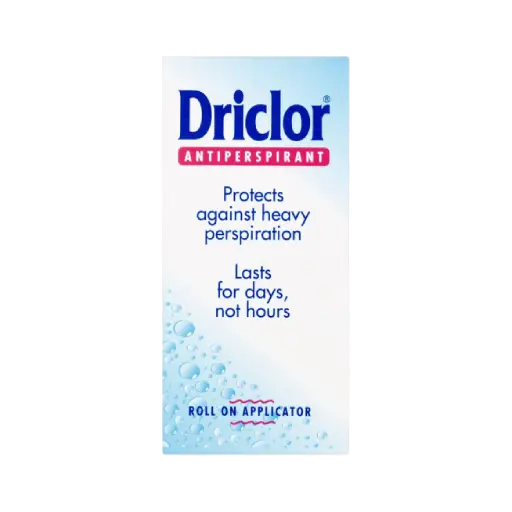hyperhidrosis (excessive sweating) consultation
Please fill in the questionnaire below. Any information provided will be kept confidential and will only be seen by a prescriber. These questions are designed to give our prescriber enough information to make a decision on whether the treatment is suitable, please fill them in truthfully.
hyperhidrosis (excessive sweating)
Hyperhidrosis is a condition that causes excessive sweating, often affecting the underarms, hands, feet, or face. While not harmful, it can be distressing and interfere with daily life. Treatments like strong antiperspirants, tablets, and Botox can help manage symptoms.
-
P
-
P
Hyperhidrosis
Hyperhidrosis is a condition where a person sweats excessively, far more than what’s needed to regulate body temperature. It can affect specific areas such as the underarms, hands, feet, face, or the whole body.
While sweating is normal, hyperhidrosis can interfere with daily life, cause embarrassment, and affect confidence. The condition is common and treatable.
What causes hyperhidrosis?
There are two types of hyperhidrosis — primary and secondary:
Primary hyperhidrosis:
- The most common type, usually starting in childhood or adolescence
- Often affects specific areas like the palms, soles, face, or underarms
- Thought to be caused by overactive nerves controlling sweat glands
- Often runs in families
Secondary hyperhidrosis:
- Usually starts in adulthood and may affect the whole body
- Can be caused by an underlying medical condition or medication
- Common triggers include:
- Diabetes
- Thyroid problems
- Menopause
- Infections or fever
- Certain medicines (e.g. antidepressants)
What are the symptoms of hyperhidrosis?
The main symptom is excessive sweating that:
- Occurs even when you’re not hot or exercising
- Is symmetrical (e.g. both hands or both feet)
- Happens at least once a week
- Interferes with daily activities, work, or social life
- Leads to skin irritation or infections in some cases
Many people with hyperhidrosis feel self-conscious or anxious about sweating, which can make the condition worse.
How is hyperhidrosis diagnosed?
Your GP will usually diagnose hyperhidrosis based on your symptoms and how they affect your life.
They may also:
- Ask about when and where you sweat
- Review any medications you take
- Run blood tests or other investigations to check for underlying causes (especially for secondary hyperhidrosis)
Hyperhidrosis treatments
Treatment depends on the type and severity of your hyperhidrosis. Many people benefit from a step-by-step approach starting with antiperspirants.
Antiperspirants
- Aluminium chloride-based antiperspirants: Stronger than regular deodorants, often the first step in treatment
- Applied at night and washed off in the morning
- Examples include Driclor or Anhydrol Forte (available from pharmacies)
Other treatment options
- Prescription medicines: Tablets like oxybutynin or glycopyrronium to reduce sweating (can cause dry mouth and other side effects)
- Iontophoresis: A painless treatment that uses mild electrical currents to block sweat glands, often used for hands and feet
- Botulinum toxin (Botox) injections: Temporarily block nerves that trigger sweat glands — especially effective for underarm sweating
- Microwave therapy: Destroys sweat glands using controlled heat — available privately
- Surgery: A last-resort option where nerves or sweat glands are removed — rarely needed
Will treatment work?
Most people find relief with strong antiperspirants or botulinum toxin injections. In more severe cases, oral medicines or specialist procedures may be recommended.
Managing anxiety and avoiding known triggers (like spicy food, heat, or stress) may also help.
Hyperhidrosis treatment side effects
Side effects depend on the type of treatment:
- Antiperspirants: May cause skin irritation or stinging if applied to broken skin
- Tablets: Can cause dry mouth, blurred vision, or constipation
- Botox injections: May cause temporary muscle weakness or bruising
- Iontophoresis: Can cause mild skin irritation or dryness
If sweating is affecting your daily life, speak to your pharmacist or GP about the best treatment options for you.

